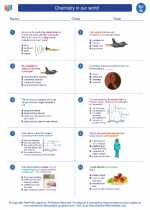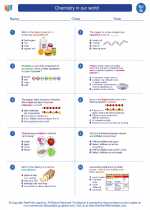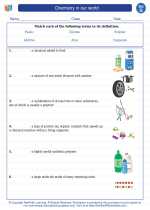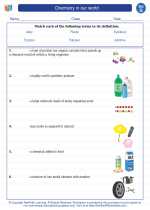Chemistry in our World
Chemistry is all around us, and understanding the basics of chemistry is important for comprehending the world we live in. From the air we breathe to the food we eat, everything involves chemistry. Let's explore some key concepts of chemistry in our world.
Atomic Structure
Atoms are the building blocks of matter. They consist of protons, neutrons, and electrons. Protons have a positive charge, neutrons have no charge, and electrons have a negative charge. The arrangement of these particles determines the properties of the elements.
Chemical Reactions
Chemical reactions occur when substances interact to form new substances. This can involve the breaking of existing chemical bonds and the formation of new ones. Understanding chemical reactions is crucial for various industrial processes and everyday activities.
States of Matter
Matter can exist in different states: solid, liquid, and gas. Changes in temperature and pressure can cause substances to transition between these states. Understanding the behavior of different states of matter is essential for numerous applications, such as in the production of materials and the functioning of various natural processes.
Acids and Bases
Acids and bases are important classes of compounds. Acids have a pH less than 7, while bases have a pH greater than 7. Understanding the properties of acids and bases is crucial for various applications, including the maintenance of the body’s pH balance and the production of various consumer products.
Organic Chemistry
Organic chemistry is the study of compounds containing carbon. These compounds are essential for life and are found in various natural and synthetic substances. Understanding organic chemistry is crucial for fields such as medicine, agriculture, and materials science.
Environmental Chemistry
Environmental chemistry focuses on the chemical processes occurring in the environment. This includes the study of pollutants, their sources, and their effects. Understanding environmental chemistry is vital for addressing environmental issues and developing sustainable solutions.
Study Guide
- Review the structure of atoms, including the arrangement of protons, neutrons, and electrons.
- Understand the basics of chemical reactions and how to balance chemical equations.
- Learn about the properties and behavior of different states of matter.
- Explore the characteristics of acids and bases, including their uses and effects.
- Study the fundamentals of organic chemistry, focusing on the role of carbon compounds in various contexts.
- Examine the principles of environmental chemistry and its implications for addressing environmental challenges.






